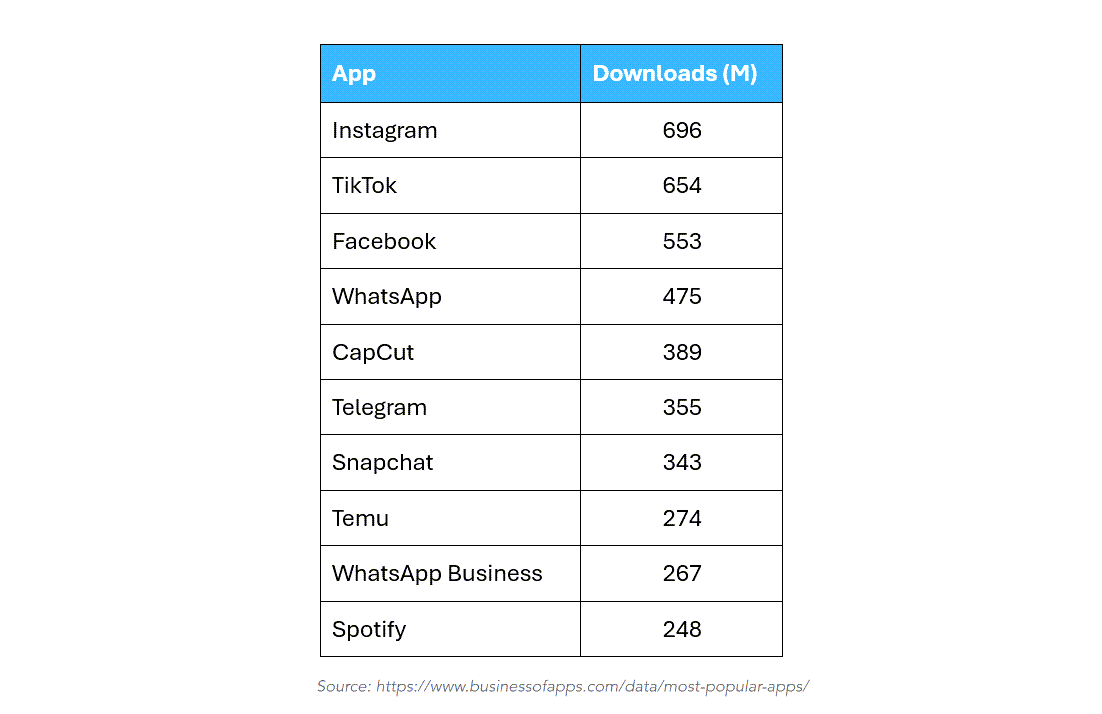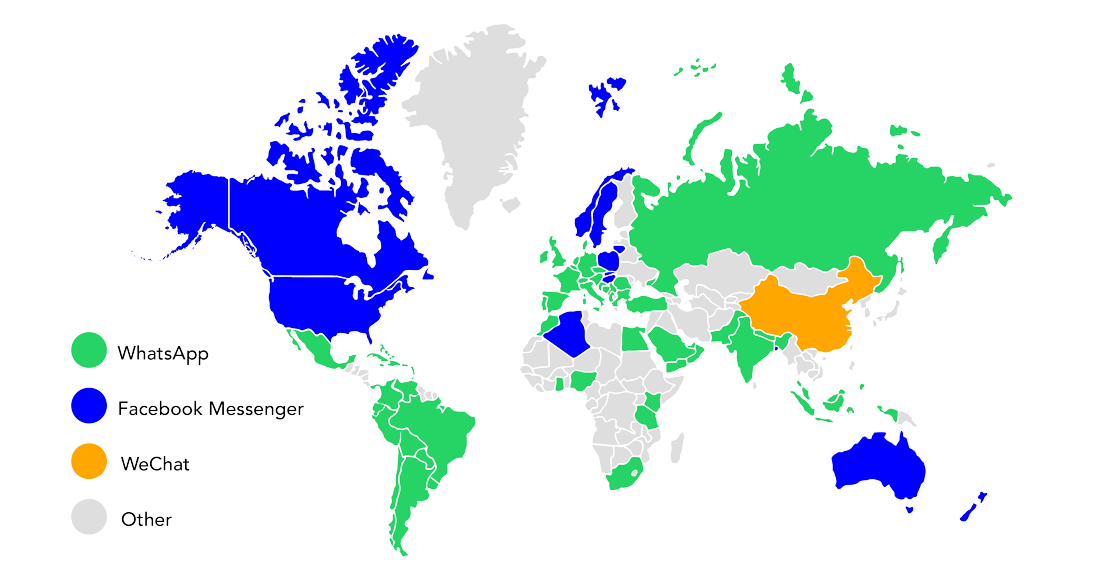
Businesses constantly seek innovative ways to connect, interact, and transact with customers. One of the most promising channels due to adoption and convenience is chat messaging, and when businesses leverage platforms like WhatsApp, iMessage, Facebook Messenger, Instagram, and WeChat, chat commerce emerges as a powerful tool forward-thinking brands use to drive engagement, revenue, and loyalty. This article explores the rise of chat commerce, its key trends and drivers, and its impact on various industries.
The Rise of Chat Commerce
Chat commerce makes chat the simplest, most convenient, and most effective way for customers to connect, interact, and transact with a business. Delivered via trusted, business-verified channels, businesses can facilitate innovative brand experiences through rich digital engagement across the customer journey. Messages to opted-in customers should be expected, timely, and relevant, with clear opt-out options. This both protects the user experience and drives business value through improved customer adoption and engagement.
Why Chat Commerce Works
Chat commerce addresses the gap between customer experience and customer expectations. It offers a combination of speed, convenience, consistency, and friendliness, all tied together by a critical element: the human touch. By leveraging chat commerce, businesses can create more personalized and satisfying customer experiences, leading to increased sales, stronger loyalty, and positive word-of-mouth.
Convenience: Customers use smartphones primarily for chatting and messaging and the apps they use are kept updated.
Reach and adoption: SMS can reach over 5 billion users, WhatsApp has 3 billion unique active users, there are 2 billion Apple devices that can send iMessages, 1.2 billion WeChat users, etc.
Seamless support: Businesses can deliver seamless customer support and engagement in chat that doesn’t rely on an app or a web session.
Operational efficiency: Understanding the context of a query through AI-assisted chatbots and live agents enables more informed customer interactions, increasing the efficiency of business processes.
Key Trends and Drivers
💬 ❤️ Enhanced Customer Engagement: Chat commerce provides a direct and convenient way for customers to interact with businesses. Whether it's asking about product availability, tracking orders, or seeking support, customers appreciate the immediacy and simplicity of chat interactions. This leads to increased customer loyalty and satisfaction.
🔄 📲 Integration of Platforms: Messaging platforms integrated with business operations via open API standards enable personalized, contextually relevant messages as part of the customer journey, and assist in delivering better customer service. Examples include providing real-time customer support, order information updates, self-service changes to details, and even rich shopping and payment experiences, all facilitated through chat. Whatever services are currently offered via app or web can most likely also be offered in chat channels.
✨ 🧑💻 AI-Assisted Customer Interactions: Modern AI-assisted chatbots trained on business-specific information and how to handle specific tasks, help to resolve customer issues in real-time through self-service, where human agents can focus on more complex situations as they arise while also benefiting from AI assistance. This not only improves customer satisfaction but also reduces operational costs.
🎯 🛒 Rich Shopping Experiences: Chat messaging allows businesses to create rich, personalized shopping experiences. By leveraging customer data, businesses can send tailored recommendations, promotions, and updates directly to customers' chat interfaces. This level of personalization fosters stronger customer relationships and drives higher conversion rates. The buying process can be simplified further with an integrated payment solution that allows customers to purchase in the chat thread.
Chat Commerce by Geography
In the top 10 most downloaded apps globally, six are messaging platforms (and four are published by Meta). Below is a list of the top 10 most downloaded apps in 2023, with the number of downloads in millions.

Chat is clearly a global phenomenon, however, its use varies by region. Instagram is the most downloaded app in India, but WhatsApp is the dominant messaging platform in this region - a trend also seen in Latin America and parts of Africa. As of 2023, Nigeria saw approximately 95% of the country's digital population engaging with the WhatsApp messaging platform monthly, while in South Africa, 94% of internet users were reported to be using WhatsApp every month. Brazil saw 93% of its internet users engaging with the platform.
The number of WeChat active accounts has been increasing steadily, and at the end of June 2024, the Chinese multi-functional social media platform by Tencent had over 1.37 billion monthly active users, ranking it the sixth biggest messaging app globally.
The most used messenger app by brand in the United States, Australia, and the Philippines is Facebook Messenger, although downloads of the app have decreased across all regions. The USA is the third largest market for WhatsApp after India and Brazil, yet has failed to unseat the popularity of SMS messaging, particularly in the form of iMessages sent between Apple devices, which are used by more than half the population of the country.

Chat Commerce by Industry
Chat commerce is leveraged across various industries to improve engagement, simplify payments, and provide personalized customer service and support. Some examples of use cases include:
Retail: Introduce products, offer recommendations, facilitate transactions, track orders, and provide customer support through chat.
Banking and Financial Services: Real-time account management, payment solutions, product upsell and cross-sell, and customer service through chat.
Insurance: Get quotes, manage policies, and submit claims through chat.
Automotive: Book car rentals, schedule service appointments, and request rides through chat.
Travel and Hospitality: Handle bookings, inquiries, and updates through chat.
Innovators in Chat Commerce
Here are some great examples of how innovative, forward-thinking businesses are using chat messaging to drive engagement, revenue, and loyalty:
✈️🌍 FlySafair: This low-cost airline in South Africa uses WhatsApp to offer seamless check-in and issuing of boarding passes, along with real-time schedule updates and the ability to purchase extras like additional baggage in the same chat thread. This simplifies the travel experience with possibly the quickest digital check-in experience in the world and demonstrates FlySafair's commitment to convenience and customer experience.
🏦💵 ABSA: ABSA Bank introduced a chat-based digital wallet, transforming how people access banking services, addressing barriers to traditional banking, and offering a secure, accessible convenient solution for managing finances.
🚗🔑 Hyundai: Hyundai's WhatsApp-powered car sales campaign in Brazil allowed customers to ask questions, find dealerships, and schedule test drives through chat. This approach maximized reach and effectiveness by leveraging the familiarity and convenience of WhatsApp with the personal touch needed to sell an expensive item with a long consideration phase.
📲🚕 Uber: Uber expanded access to its ride-hailing services in India by integrating with WhatsApp, allowing riders to book rides directly through the chat platform. This feature effectively eliminated the need for the Uber app and enhanced accessibility for a broader audience.
What About Privacy and Security?
Privacy and security are crucial pillars of chat commerce. Platforms like WhatsApp prioritize end-to-end encryption to protect sensitive information such as payment details and personal data. Business solution providers must also offer the infrastructure, compliance, and banking-grade security to ensure that large consumer brands can deliver secure, private user experiences on chat messaging channels. For instance, ABSA Bank's deployment of a digital wallet on WhatsApp proves that secure experiences can be delivered in chat!
Conclusion: The Future is Conversational, and AI-Assisted
Chat commerce empowers large consumer brands to meet customer needs through simple yet rich text replies, transforming drawn-out and laborious processes into convenient, personalized, and secure interactions that drive engagement, revenue, and loyalty.
The future of chat commerce is set to be even more intelligent, data-driven, and deeply integrated. Advancements in AI, data usage, and digital transformation will drive the evolution of chat commerce, making it an essential strategy for businesses looking to remain competitive and meet customer demands in the digital landscape.
Explore other articles
Step into the future of business messaging.
SMS and two-way channels, automation, call center integration, payments - do it all with Clickatell's Chat Commerce platform.








